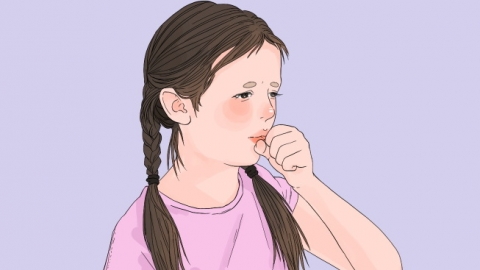What medication is effective for treating dry cough in children?
Generally speaking, a dry cough refers to a non-productive cough. Dry cough in children may be caused by dry environment, dietary irritation, allergic cough, bronchitis, cough-variant asthma, and other reasons. It is recommended to seek timely medical consultation, and under a doctor's guidance, medications such as Cetirizine Hydrochloride Tablets, Loratadine Tablets, Levofloxacin Hydrochloride Tablets, Cefixime Capsules, and Prednisone Acetate Tablets may achieve better cough-relieving effects. Detailed analysis is as follows:

1. Dry Environment
When the environmental humidity is low, the moisture in the respiratory mucosa easily evaporates, causing dryness and stimulating the nerve endings in the respiratory tract, thus triggering a dry cough. Usually, no medication is necessary. A humidifier can be used to increase indoor humidity to 40%-60%, or bowls of water can be placed indoors to increase evaporation.
2. Dietary Irritation
Consuming overly sweet, salty, or spicy foods may stimulate the nerves in the throat and airways, triggering a cough reflex. Typically, no medication is required. It is important to maintain a bland diet for children, avoid feeding them excessive spicy foods, and limit snack intake.
3. Allergic Cough
Allergic cough is related to exposure to allergens such as pollen, dust mites, and animal dander. After contact with allergens, the immune system overreacts, leaving the airways in a hyper-sensitive state where even minor stimuli can trigger a dry cough. Symptoms may also include nasal itching and eye itching. Treatment can be administered under a doctor's guidance with medications such as Cetirizine Hydrochloride Tablets, Loratadine Tablets, and Montelukast Sodium Tablets.
4. Bronchitis
Bronchitis is often caused by viral, bacterial, or mycoplasma infections, or irritation from physical and chemical factors. Inflammation affects the bronchial mucosa, increasing secretion and impairing ciliary movement, which may lead to airway narrowing and poor discharge of secretions, stimulating cough receptors and causing dry cough. Symptoms may also include fever and shortness of breath. Treatment can be administered under a doctor's advice with medications such as Levofloxacin Hydrochloride Tablets, Cefixime Capsules, and Compound Methoxyphenamine Capsules.
5. Cough-Variant Asthma
Cough-variant asthma is associated with genetic and environmental factors. Chronic airway inflammation and airway hyperresponsiveness exist, and after exposure to cold air, exercise, or other stimuli, airway smooth muscle contracts, mucosal edema occurs, and secretions increase, stimulating airway nerves and causing dry cough. Symptoms may also include chest tightness and wheezing. Treatment can be administered under a doctor's advice with medications such as Prednisone Acetate Tablets, Methylprednisolone Tablets, and Aminophylline Tablets.
In daily life, it is important to adjust children's clothing promptly according to weather changes to avoid catching a chill. Encourage children to engage in appropriate outdoor activities to strengthen their constitution, but pay attention to the environment and intensity of exercise.




